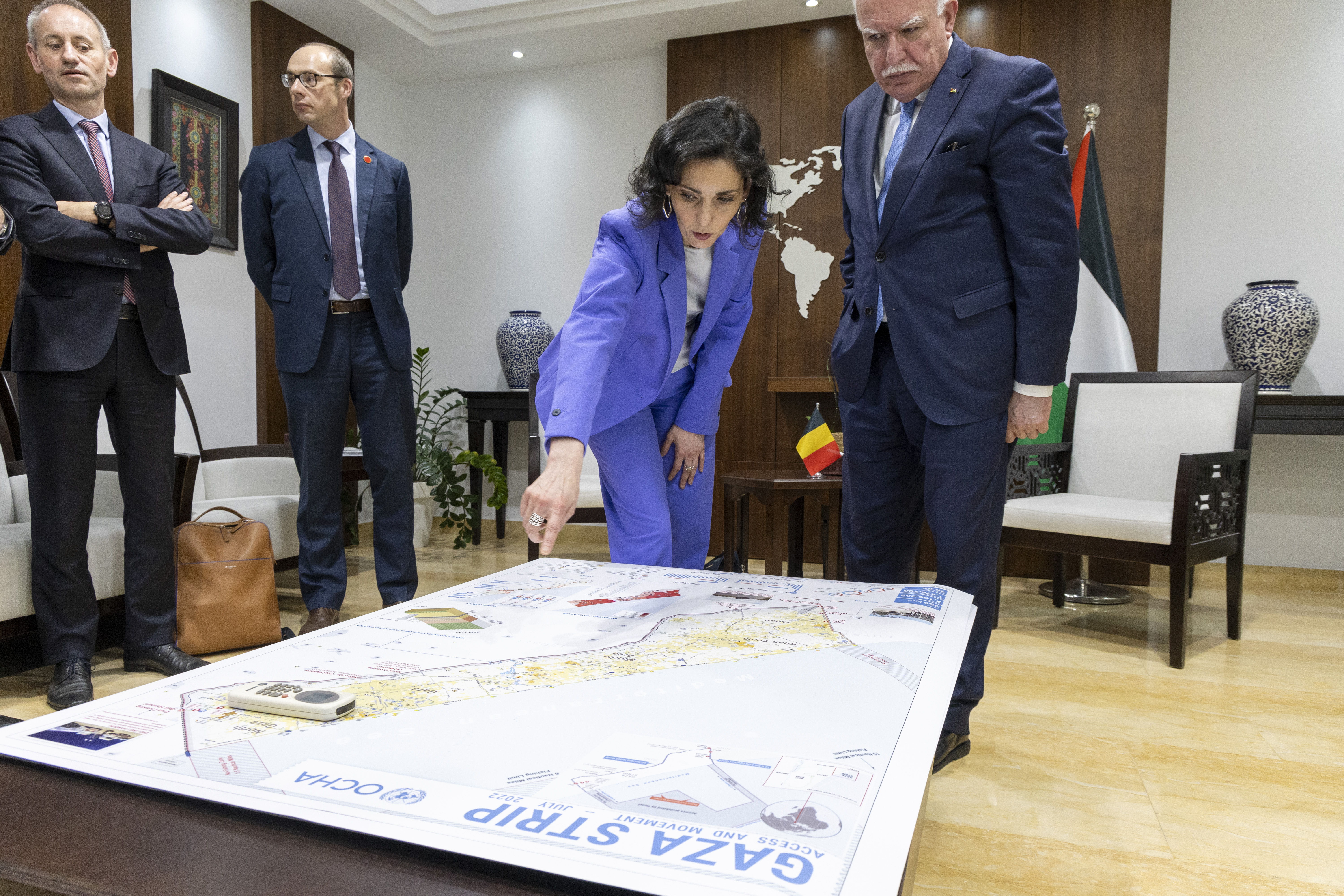Belgium still divided over recognition of Palestine

Six of Belgium's seven governing parties are in favour of recognising the Palestinian state, but francophone liberal party MR is not yet convinced, several sources said on Friday after an inner cabinet meeting.
In the 2020 coalition agreement, the federal government agreed to take steps with like-minded countries to recognise the Palestinian state. Several parties have recently increased pressure to speed up this commitment.
At the meeting on Friday, Foreign minister Hadja Lahbib spoke of the situation in the Middle East, the military escalation between Iran and Israel and the vote on Palestine's status at the United Nations. Belgium's recognition of Palestine was also discussed.
Belgium supports a two-state solution to end the conflict between Israel and Palestine. After the meeting, several sources said that six of the seven governing parties – PS, Vooruit, Groen, Ecolo, Open VLD and CD&V – favour recognising the Palestinian state.
Not in favour 'in current situation'
MR is still undecided, however. Earlier this week, party leader Georges-Louis Bouchez said he was not in favour "in the current situation". "You need a state structure. Hamas are terrorists, and Fatah is no longer able to govern its territory," he said.
"The Belgian coalition agreement states that we are in favour of a two-state solution," Ecolo deputy prime minister Georges Gilkinet said on Friday. "Today, there is a recognised state, Israel, and a state that is not yet recognised, Palestine."
"Recognition should be used as a strategic lever in a global political process"
"There has to be a procedure with certain conditions regarding democracy. A way has to be found. We have to send a signal to the international community," he said.
Lahbib, of MR, was more cautious. The coalition agreement provides for recognition "in due course with a significant number of like-minded countries", her cabinet said.
"Recognition should be used as a strategic lever in a global political process, and it must be activated at the right time and with the maximum number of member states to have the maximum impact on the peace process and the realisation of a two-state solution."
Full UN membership
The US veto in the UN Security Council against full Palestinian membership was also discussed at the meeting. A Palestinian resolution calling on the Security Council to reconsider its position is expected to be tabled soon in the General Assembly.
Belgium's minister for Development Cooperation, Caroline Gennez, of Flemish socialists Vooruit, said on Friday that Belgium remained committed to full Palestinian membership of the UN. Lahbib said the Belgian position would depend on the resolution's content.
According to Gennez, the inner cabinet has decided to ask the EU to review its association agreement with Israel and to introduce an import tax on products from illegal Israeli settlements. This was also confirmed by another government source.
Recognised by over 130 countries
Palestine is officially recognised by more than 130 countries, including 10 EU member states. Several central European countries recognised Palestine when they were part of the Soviet Union. In 2014, Sweden became the first country to recognise Palestine while it was part of the EU.
In March, Spanish prime minister Pedro Sanchez issued a joint statement with his Irish, Maltese and Slovenian counterparts, saying they were ready to recognise Palestine. The countries said recognition could contribute positively to resolving the Israeli-Palestinian conflict.
Belgian Foreign minister Hadja Lahbib and Palestinian Foreign minister Riyad al-Maliki at a meeting in Ramallah, West Bank, in March 2024 © BELGA PHOTO NICOLAS MAETERLINCK
Related news
